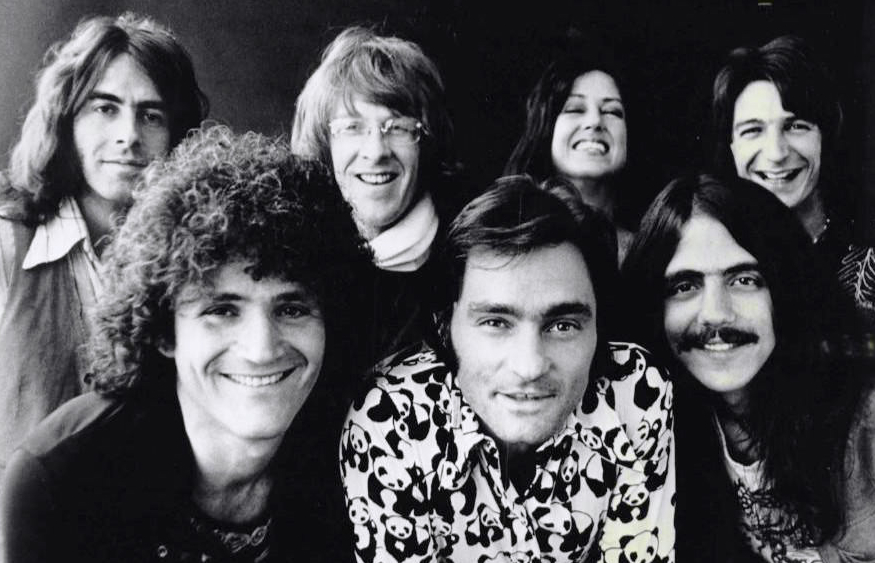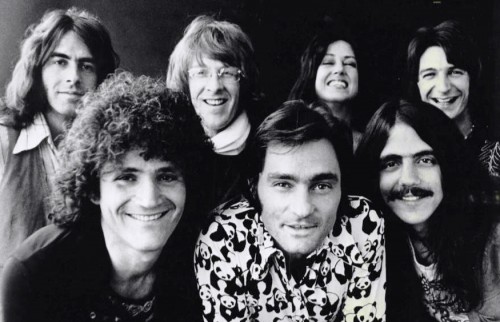
The classic rock world has suffered yet another loss as Jefferson Airplane co-founder and guitarist Paul Kantner has died January 28, 2016, at age 74. It is being reported that Kantner had suffered a heart attack earlier this week (and a previous one in March 2015). According to reports, his death was attributed to multiple organ failure.
Jefferson Airplane began in 1965 and were among the founders of San Francisco’s so-called psychedelic era music scene in the ’60s. They scored twin 1967 “Summer of Love” hits with “Somebody To Love” and “White Rabbit” from their Surrealistic Pillow album. The two songs were the only two by the original incarnation of the band to chart within the Top 40 of the U.S. singles chart. But they enjoyed a long and successful run on the Albums chart with six straight LPs charting in the Top 20 from 1967-1972.
Just this week, in the wake of the recent deaths of such huge rock music figures like David Bowie, Glenn Frey and Lemmy Kilmister, Best Classic Bands published a story headlined “Why Deaths of Older Rock Legends Still Shake Us.” (Click here to read Jim Sullivan’s opinion piece.)
Here’s the band performing “Somebody To Love” at Woodstock in 1969. Grace Slick: “Alright friends you have seen the heavy groups… Now you will see morning maniac music. Believe me, yeah. It’s a new dawn.”
If you’re a new Best Classic Bands reader, we’d be grateful if you would Like our Facebook page and/or bookmark our Home page.
Kantner, of course, was part of the band’s classic lineup, joined by Grace Slick, Marty Balin, Jack Casady, Jorma Kaukonen, Spencer Dryden. When Kaukonen and Casady split to form Hot Tuna, Slick and Kantner reinvented their band, renaming it Jefferson Starship.
Among Kantner’s songwriting credits are “Volunteers” (with Balin). He also co-wrote “Wooden Ships” with David Crosby and Stephen Stills. Both CS&N and Airplane recorded the song, though the former version is far better known.
The band kept many of its loyal fans and enjoyed an even stronger run in the ’70s, as albums became the configuration of choice for record buyers. In a 10-year period from 1974-1984 in which they were also joined by Balin, the band released eight albums including the #1 Red Octopus. All of the titles were certified at least Gold, signifying sales of at least 500,000.
In a 2001 interview with Newseum, the interviewer said: “You were the political force behind a very political band.” Kantner cut him off. “We were a really a-political band if you analyze it. We had the advantage of being from San Francisco which is very nutritious for off-the-beam kind of people. Rather than going up against City Hall, we had the luxury of getting away with creating our own City Hall and establishing an ability to do what we wanted to do and for some reason we got away with it. It caused a lot of people who do fight (the establishment like the] ACLU to get a little resentful of us and called us sort of irresponsible hedonists.”
Jefferson Starship earned two Top 10 hits: 1975’s “Miracles” and 1978’s “Count On Me.” In the late ’70s when Balin left the group, they recruited a new lead singer, Mickey Thomas, whose biggest career achievement up until that point was serving as lead vocalist for the Elvin Bishop hit, “Fooled Around and Fell in Love.”
Kantner left the group after the 1984 release of Nuclear Furniture and did not participate in the next spinoff, Starship.
Jefferson Airplane were inducted into the Rock and Roll Hall of Fame in 1996.


1 Comment
No comments? Well I got one. Paul Kantner was one of the most intelligent, articulate and passionate leaders of my generation. His songs could be both tender (Martha) and incendiary (We Can Be Together). “Blows Against The Empire” was a truly revolutionary album. This man had VISION. He will not be forgotten.